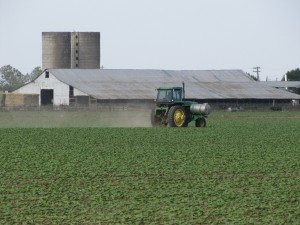FRESNO, Calif. (AP) Despite written policies protecting farmland across Central California's agricultural heartland, the state's most productive region is on track to lose 570,000 acres of prime, irrigated land to development by 2050, according to a new report.

The American Farmland Trust says the loss could drain between $100 billion and $190 billion from the regional economy, based on crop values and related expenses. The land represents a more than doubling of the current urban footprint of valley cities stretching from Modesto to Bakersfield.
The agriculture protection group released its study Thursday on how city and county development policies are affecting the San Joaquin Valley, which the group calls the most important farming region in the world. Fresno County, with around $7 billion in agricultural production, leads the nation in crop value.
"Counties have made a commitment to conservation, but few are making significant progress toward that goal," said Ed Thompson, the group's California state director.
The report said that land considered ``prime, unique and of statewide importance'' by the California Department of Conservation comprises 39 percent of the eight counties in the region. Yet between 1990 and the economic slowdown in 2008, the report said a disproportionate 61 percent of development was on prime soils, which mostly exist along the urbanized Highway 99 corridor.